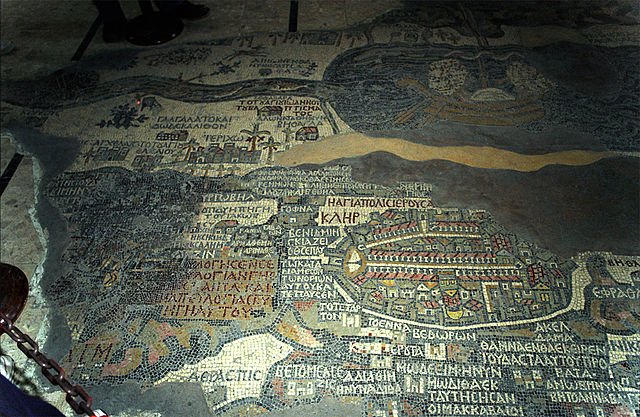“To ‘trace Christians’ in a ‘global late antiquity’ is to grapple with how the global has too long been framed in Christian terms anyway,” notes Annette Yoshiko Reed in her contribution to this roundtable. Her observation is a response to the title of the conference Tracing Christians in Global Late Antiquity, an event held remotely from May 30 – June 2, 2021. This conference was supported by a wide coalition of people and organizations, including the emerging Global Late Antiquity Society.
Ancient Jew Review is pleased to feature the remarks from the opening roundtable, “Method, Ethics, and Historiography in the Study of Late Antique Christianity.” Led by these discussants, conference participants watched late ancient religion overflow out of a chronologically set Mediterranean basin into early modern imperialism, into the definition of “religion,” and into twenty-first-century politics. They tackled the patterns of ethical failings which formed the study of late ancient Christianity, and how tenaciously those patterns continue to hold sway over not only our academic discipline but our world, from “what religion is,” to pop culture, to political unrest. Our knowledge is partial because our discipline’s ethical failings have so constrained what we wish to know and how and from whom. These discussants wrestled mightily with such questions.
Alex Leewon Schultz, a PhD candidate in Classics at Harvard University, initiated and chaired the roundtable. In her work on ancient libraries, she debunks and complexifies myths about who “owns” and stewards knowledge in antiquity and today. “How do we want to explain historical change and causation?” she asks, challenging us to resist seeing ourselves as inheritors of a masculinist, Eurocentric chain of knowledge and a method of explanation that naturalizes our present. Ethics are in large part a phenomenon of desire, and Schultz impels us to want something different.
Annette Yoshiko Reed also urges historians to attend to the risks of generalization and the opportunities of particularization. She notes that Christian sources like Augustine are seen as representative of late antique religion, while Jewish sources like the Mishnah and the Talmud are seen as particular and idiosyncratic. These tendencies manifest in the discipline of religion itself, categorizing practices within the scope of “religion” if they seem sufficiently analogous to certain kinds of Christianity. Reed’s response helpfully troubled the frame of the conference as a whole.
David Maldonado Rivera describes himself as “a historian of late antiquity trying to parse the elsewhere of the refulgence of these pasts.” He traces the legacies of colonization by both Spain and the U. S. in Puerto Rico, where in 1908 the U. S. Supreme Court issued a ruling about Catholic properties in Puerto Rico based on precedent from Constantine and Justinian. When I think of Maldonado Rivera’s project in reception history, I resort to words like “haunting” and “echo,” but this would elide the strength of his intervention – before corporations were legally people in the U. S., the Catholic Church was, with radically material effects. This too is the study of late antiquity.
Ekaputra Tupamahu reads with a hermeneutic of resistance to decenter the “evangelistic-expansionist” explanation of the glossolalia in I1 Corinthians 14 that has dominated exegesis since Theodoret of Cyrrhus in the fifth century C. E. Under this rubric, Theodoret and his successors claimed that the gift of glossolalia (speaking in tongues) was for the divine purpose of Christian expansion, a logic which aligned well with imperial projects in both antiquity and modernity. In their anxiety to identify an orderly logic for a potentially chaotic practice, these interpreters aligned themselves with Paul’s own project of legislating social order. Tupamahu asks what happens when interpreters change their “interpretative allegiance” from Paul to the tongue(s) speakers of Corinth, learning from decolonial scholars who have examined instances of linguistic violence wrought around the world.
Young Richard Kim spoke to us from his home discipline of classics, assessing how it has been weaponized in contemporary political groups in the U. S. and Europe, as well as sharing examples of how parts sectors of the discipline have responded through coalition-building and public-facing work. When allied with partners outside the academy, he asks, can our antiquity-oriented fields adequately reckon with their legacies in the present?
Sarah F. Porter is a Ph.D. Candidate in New Testament and Early Christianity at Harvard University. Find her on Twitter or drop her a line at sporter@g.harvard.edu.
